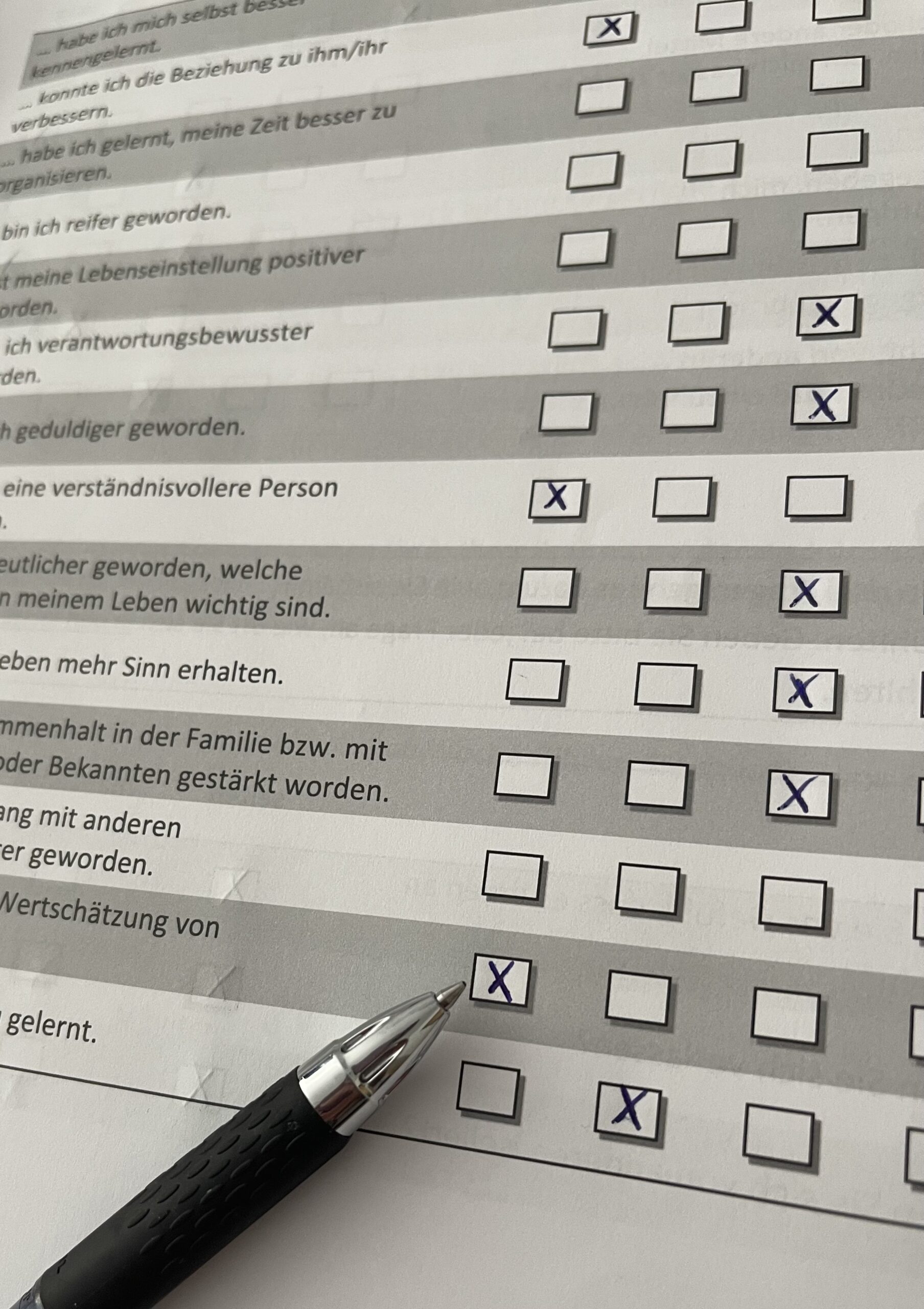You are a scientist and would like to integrate the BBCS into your research? Download the scale here for free and network with other scientists in this research area: Download the BBCS here for free
General Information on the BBCS-Scale 
The Benefits of Being a Caregiver Scale (BBCS) is a valid assessment tool for rating the benefits that caregivers can derive from their caregiving work.
The BBCS is a self-assessment scale with 14 statements on the benefits of caregiving, rated by participants on a 5-point-scale (4 = “strongly agree”, 3 = “agree”, 2 = “partially agree”, 1 = “rather disagree”, 0 = “strongly disagree”). The score ranges from 0 to 56 points with higher scores representing a greater benefit. It can be used very easily in research and practice and is available free of charge in German and English. It was extensively scientifically validated in 2022.
Benefit/ Purpose
Family Caregivers experience not only the negative aspects of domestic caregiving, but also the positive effects that only arise as a result of caregiving activities. These so-called gains from home care are being measured by the BBCS. Experienced gains could have beneficial effects on the caregivers, the care receivers and the overall situation. For example, there is preliminary evidence for buffer effects, meaning that negative psychological (for example depression) as well as physical (like physical discomfort or pain) consequences of caregiving could be mitigated by the gains.
By looking at this aspect of caregiving activities, there might be a contribution to improving the caregiving situation in Germany.
Scale Development
In order to assess the gains of domestic care in a scientifically valid way, researchers of the University Hospital Erlangen have developed the BBCS as a special questionnaire for family caregivers for the first time worldwide, involving scientists of various disciplines, experts on dementia care and caregiving in general as well as family caregivers. As part of the subsequent study, the researchers interviewed more than 900 caring relatives in a representative pilot study, supported by the Medical Service (MD) of Bavaria. The most important goal was to identify favorable factors that lead to more gains. By completing this questionnaire, caring relatives were able to experience the gains for themselves and learn that they are the result of their caregiving activities.
Exciting Findings
In the recently published study, 61.7 percent of the respondents stated that being a caregiver had made it clearer to them which values were important to them personally in their lives. More than half of the participants “learned a lot”, 41 percent reported being able to organize their time better. The gains – the so-called benefits – include further experiences: The caring relatives have become more patient and mature, experienced more appreciation from others or gained a more positive outlook on life.
It was remarkable that the gains were experienced completely separately from the burden and duration of the caregiving.
Outlook
Based on the researched gains, practical measures can be developed and the living situation of caring relatives and the ones receiving care can be improved. This can make an important contribution to strengthening the home care system in Germany.
To whom is the BBCS addressed?
The Benefits of Being a Caregiver Scale can be completed by anyone caring for one or more relatives in the context of home care.